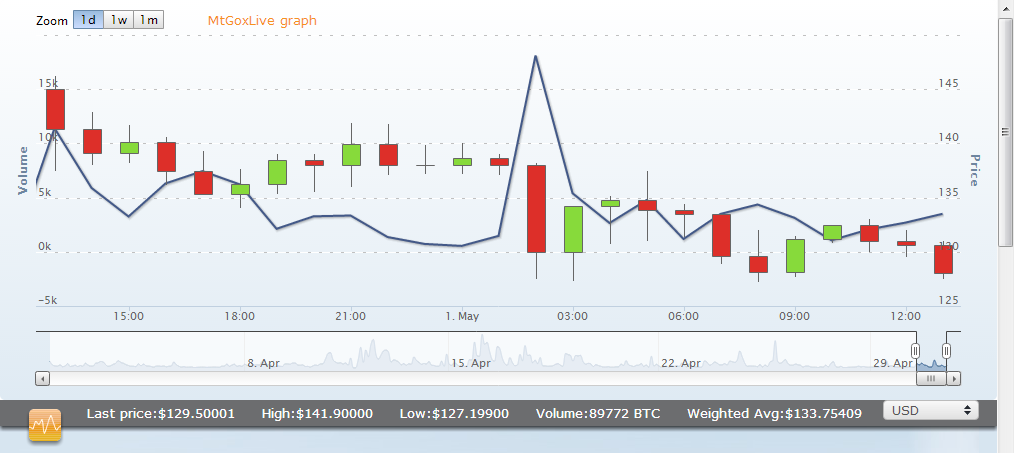Bitcoin Explained from Duncan Elms on Vimeo.
Part of being a successful trader is staying up to date with the latest developments in technology and finance. If you haven’t noticed, world currencies have been a mess in recent years, destabilized by manipulation, politics, and a host of other reasons. It’s important that you’re aware what Bitcoin is and how it attempts to solve problems that plague traditional currencies.
What is Bitcoin?
Simply put, Bitcoin is a decentralized digital currency and cash system. In this case, decentralized means there is no central, real-world governing body or regulation authority that oversees Bitcoin transactions. With traditional currencies such as the U.S. Dollar, Euro, etc., a central bank prints currency as needed.
What is the Bitcoin currency based on?
In history studies, you’ve probably investigated what the U.S. dollar actually symbolizes. At one time, the gold standard linked U.S. dollar value directly to gold. Since President Nixon’s actions in 1971, the U.S. dollar has been somewhat abstract when trying to establish its link to any physical commodity.
Bitcoin is truly different in this sense. The value of Bitcoins were intentionally made rare using a mathematical formula (algorithm). Through a process called Bitcoin mining, a computer is given a complex mathematical problem to solve. If your computer can successfully solve this algorithm to produce a special 64-digit number, you become the proud owner of 50 Bitcoins. You can imagine the amount of computers in the world cranking around the clock to derive these special numbers. Only 21 million Bitcoins that will ever be created in total, with this total reached in the year 2140. There’s a market for Bitcoin mining pools and building computers dedicated for the purpose of Bitcoin computation. What’s to stop a supercomputer from deriving destabilizing the Bitcoin currency? The Bitcoin network automatically adjusts the computational difficulty of the mining algorithm, ensuring a new block of 50 Bitcoins can only be produced approximately every 10 minutes. It’s designed to be self-stabilizing. Last year, miners generated approximately $16.7 million. At press time, a single Bitcoin was worth roughly $130 USD.

Huh? Candles for this relatively new and unregulated currency? Yes, you can actually trade Bitcoins.
What about Bitcoin security?
A host of technologies are used to ensure the integrity of the transactions and stability of the currency. In addition to the automatically adjusting algorithm described above, a P2P (peer-to-peer) system keeps transaction direct from buyers to sellers. In this sense, transactions are similar to torrents. Digital signatures and an open-source, cryptographic protocol serve to authenticate exchanges. According to a PC World article, “Gonzague Gay-Bouchery, who heads marketing for Mt. Gox, said the exchange is slightly limiting the number of mini-transactions a trader can submit and capping the transactions during high trading times.” If successful, this would successfully prevent Bitcoin from becoming subject to the same overwhelming high frequency trading that occurs in regular equities, futures, commodities, etc.
What are Bitcoin exchanges?
For a digital currency to be successful, it needs to be easy to buy and sell. Exchanges, in the form of websites, serve to facilitate this buying and selling. Mt. GoX, located in Japan, is the most popular exchange, claiming to handle over 80% of all trade. If you click the gray banner at the top of the page, you’ll get a drop-down chart just like we posted here. You can see buying and selling price over time just like you do in your regular trading platforms. Currently, the best place to watch real-time Bitcoin market data and charts is this site. Note that it takes about a minute for market data to load. The programmer of this page is working on a standalone trading platform Bitcoin exchange markets. The Mt. GoX exchange lets users deposit into a Bitcoin account from regular currency using a bank transfer. Likewise, Bitcoins can be converted to regular currency and placed back into a bank account. Popular websites such as WordPress, Etsy, and Reddit accept Bitcoin.
What are some Bitcoin’s criticisms?
This Forbes article describes how Bitcoin may be a disruptive technology. On occasion, hackers have attacked Bitcion, causing the value of the currency to approach levels of worthlessness. One can speculate that hackers can also cause Bitcion value to rise, although real-world markets are subject to manipulation as well in the form of high frequency trading algorithms and institutions with large accounts. Because of Bitcoin’s inherent anonymity, it is used by shady parts of the internet for the buying and selling of illegal goods.
What do you think?
Do you think Bitcoin is just a trend or bubble that will burst?
Would you feel safe investing in Bitcoins?
Do you have any reason to use Bitcoin now?





Does the Atlas Line work on Bitcoin?
Hi Ivan. No, the Atlas Line does not work on Bitcoin. As mentioned, a proper trading platform for trading Bitcoin does not yet exist. The only platform in existence right now seems to be under development by a single individual as linked to above. Perhaps some day we’ll offer methods or strategies for Bitcoin. The mechanics of Bitcoin price action will surely differ from regular financial markets. There will need to be some discovery and testing first – that’s for sure!